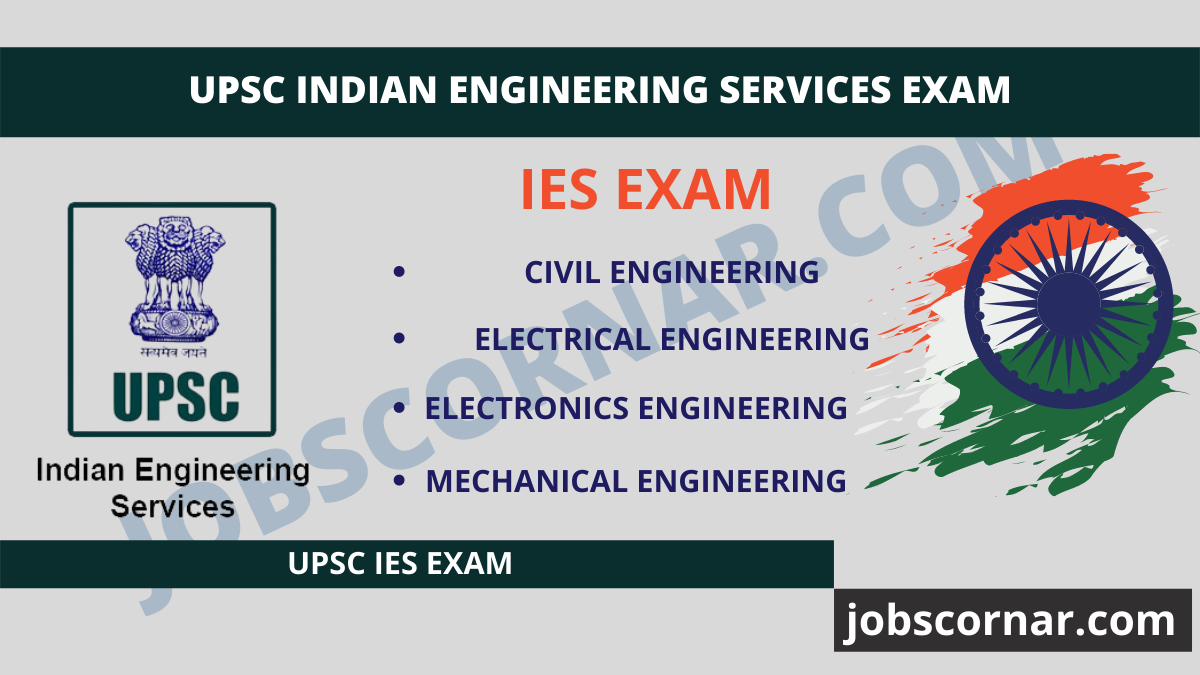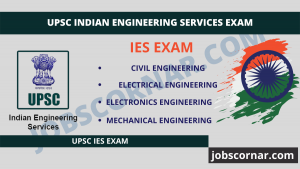What is IES Exam?
Indian Engineering Services Exam Latest. Indian Engineering Services (IES) or Engineering Services Examination (ESE) comprise of engineers who work under the government of India and are designated as Class – 1 officers. They administer a large segment of the public sector economy, which constitutes of Indian Railways, Power, Telecommunications, Central Water engineering, Defence service of Engineers, Central Engineering Service, namely. The nature of work performed by these bureaucrats largely depends on their engineering branch and the service or cadre they are recruited in. The career progression goes smoothly attaining high esteem. The first position offered is that of Asst. Executive engineer and the hierarchy ends at the position of Chairman/ Managing Director.
IES Exam Details
| Exams | Engineering Services Examination (ESE) |
| Conducted By | UPSC |
| Exam Level | National |
| Frequency | Once in a Year |
| Educational Qualification | Engineering |
| Age Limit | 21-30 Years |
| Number of Vacancies | 490+ |
| Selection Process | Preliminary, Main Exam & Interview |
| Preliminary Exam | Objective Type |
| Main Exam | Conventional |
| Admit Card Availability | 3 weeks before the Exam |
| Withdrawal of Application | Yes |
| Application Fee | Rs. 200 |
ESE Exam Group-A Services/Posts
A combined competitive examination is conducted by the UPSC for recruitment to the Indian Engineering Services (IES). The recruitment of qualified candidates is made under the following categories:
- Electrical Engineering
- Mechanical Engineering
- Civil Engineering
- Electronics & Telecommunication Engineering
| Discipline | Recruitment Department |
| Civil Engineering | 1. Border Roads Engineering Service (Border Roads Organisation) 2. Central Engineering Service (Central Public Works Department) 3. Central Engineering Service (Ministry of Road Transport & Highways) 4. Central Water Engineering Service (Central Water Commission) 5. Indian Defence Service of Engineers (Military Engineer Services) 6. Indian Ordnance Factories Service (IOFS) 7. Indian Railway Service of Engineers 8. Indian Railway Stores Service 9. P & T Building Works Service (DoT, Ministry of Communication & Information Technology) 10. Survey of India 11. Indian Inspection Services |
| Electrical Engineering | 1. Central Electrical and Mechanical Engineering Service (Central Public Works Department) 2. Central Power Engineering Service (Central Electricity Authority) 3. Indian Army Corps of EME (Electrical and Mechanical Engineers) 4. Indian Defence Service of Engineers (Military Engineer Services) 5. Indian Ordnance Factories Service (IOFS) 6. Indian Railway Service of Electrical Engineers 7. Indian Railway Stores Service 8. Indian Naval Armament Service (Directorate of Naval Armament) 9. Indian Naval Stores Service (Indian Navy) 10. Indian Supply Service (Directorate General of Supply and Disposals) 11. P & T Building Works Service (DoT, Ministry of Communication & Information Technology) |
| Electronics & Telecommunication Engineering | 1. Central Power Engineering Service (Central Electricity Authority) 2. Indian Army Corps of EME (Electrical and Mechanical Engineers) 3. Indian Ordnance Factories Service (IOFS) 4. Indian Radio Regulatory Service 5. Indian Railway Service of Signal Engineers 6. Indian Railway Stores Service 7. Indian Inspection Service (Directorate General of Supply and Disposals) 8. Indian Naval Armament Service (Directorate of Naval Armament) 9. Indian Naval Stores Service (Indian Navy) 10. Indian Supply Service (Directorate General of Supply and Disposals) 11. Indian Telecommunication Service |
| Mechanical Engineering | 1. Border Roads Engineering Service (Border Roads Organisation) 2. Central Electrical & Mechanical Engineering Service (Central Public Works Department) 3. Central Engineering Service (Ministry of Road Transport & Highways) 4. Central Power Engineering Service (Central Electricity Authority) 5. Central Water Engineering Service (Central Water Commission) 6. Indian Army Corps of EME (Electrical and Mechanical Engineers) 7. Indian Defence Service of Engineers (Military Engineer Services) 8. Indian Inspection Service (Directorate General of Supply and Disposals) 9. Indian Naval Armament Service (Directorate of Naval Armament) 10. Indian Naval Stores Service (Indian Navy) 11. Indian Ordnance Factories Service (IOFS) 12. Indian Railway Service of Mechanical Engineers 13. Indian Railway Stores Service 14. Indian Supply Service (Directorate General of Supply and Disposals) |
How to Apply?
- Interested Candidates Visit the official website of UPSC – www.upsc.gov.in
- Go to ”Apply Online” Click on ”Online Application for Various Examinations” Find the ESE online application form.
- Start filling-up all the details such as name, address, age, etc. in the Part I registration.
- Under the Part-II registration, upload the documents such as photograph and signature.
- Pay the prescribed application fee amount. Submit the IES application form.
- Download the ESE application form and take a printout of the same for future reference.
IES Exam Pattern:
The examination shall be conducted according to the following plan:
- Stage-I: Engineering Services (Preliminary/Stage-I) Examination (Objective Type Papers) for the selection of candidates for the Main Exam
- Stage-II: Engineering Services (Main/Stage-II) Examination (Conventional Type Papers)
- Stage-III: Personality Test.
| Paper | Subject | Question Type | Marks | Duration |
| Paper-1 | General Studies and Engineering Aptitude | Objective | 200 | 2 Hours |
| Paper-2 | Engineering (Civil/Mechanical/Electrical/Electronics and Telecommunication) | Objective | 300 | 3 Hours |
| Total | 500 | 5 Hours |
| Paper | Subject | Question Type | Marks | Duration |
| Paper-1 | Engineering (Civil/Mechanical/Electrical/Electronics and Telecommunication) | Descriptive | 300 | 3 Hours |
| Paper-2 | Engineering (Civil/Mechanical/Electrical/Electronics and Telecommunication) | Descriptive | 300 | 3 Hours |
| Total | 600 | 6 Hours |
Nationality:
A candidate must be either:
- a Citizen of India, or
- a subject of Nepal, or
- a subject of Bhutan, or
- a Tibetan refugee who came over to India before January 1, 1962, with the intention of permanently settling in India, or (e)
- a person of Indian origin who has migrated from Pakistan, Burma, Sri Lanka or East African Countries of Kenya, Uganda, the United Republic of Tanzania, Zambia, Malawi, Zaire, and Ethiopia or from Vietnam with the intention of permanently settling in India.
Note:
- Provided that a candidate belonging to categories (b), (c), (d) and (e) above shall be a person in whose favour a certificate of eligibility has been issued by the Government of India.
- A candidate in whose case a certificate of eligibility is necessary may be admitted to the examination but the offer of appointment may be given only after the necessary eligibility certificate has been issued to him/her by the Government of India.




